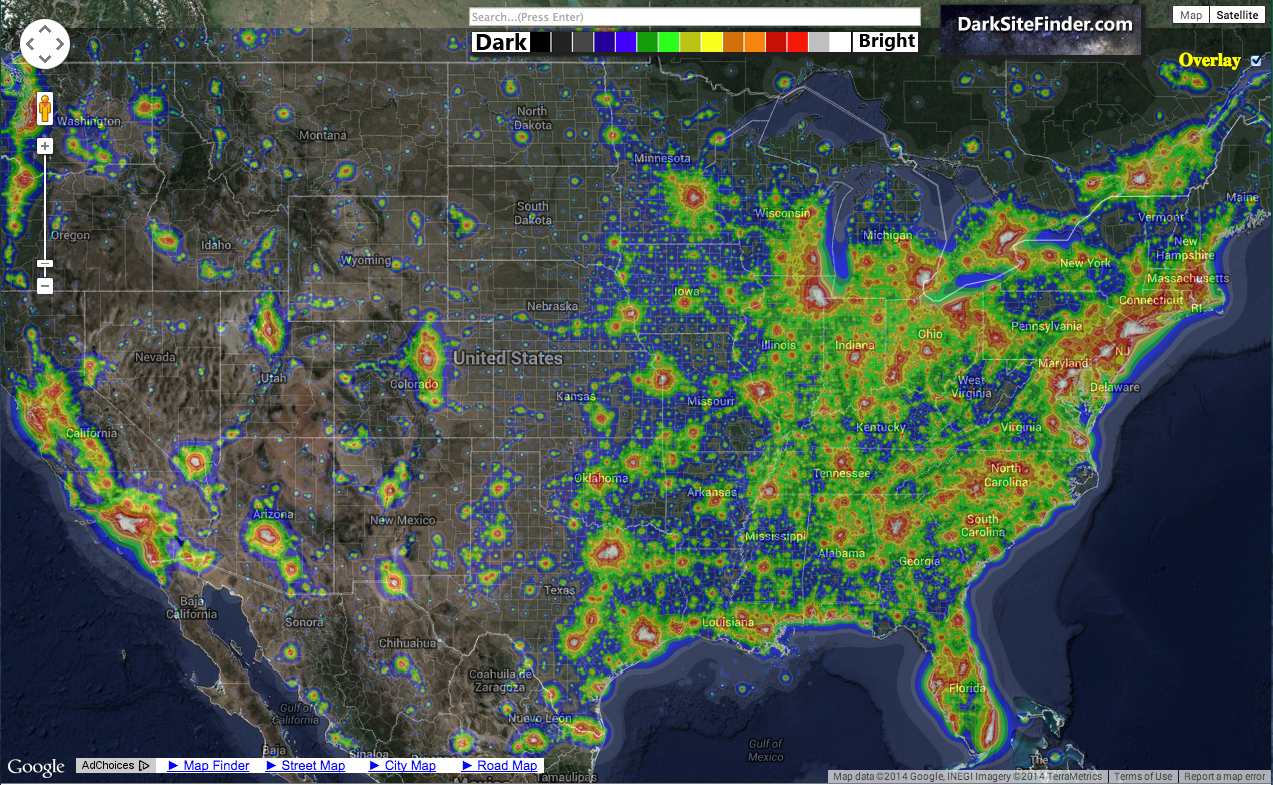Gina Trapani’s post on Short Form Blogging on Scribbling.net precisely captures my own current approach to blogging almost perfectly.
Fireball Over Tennessee
Posted by James Spann:
Concerning last night’s fireball in the southern sky… There was a very bright fireball over middle Tennessee last night (October 20) at 7:57:09 PM CT. Four NASA all sky cameras (located in Tullahoma, Huntsville, Chickamauga, and North Georgia College) first detected it at an altitude of 54 miles, moving slightly north of west at 47,000 miles per hour.The meteor, estimated to weigh around 10 pounds, travelled some 64 miles through the atmosphere before fragmenting 24 miles above the town of Brentwood, south of Nashville. At its brightest, the fireball rivaled the first quarter Moon, gathering a fair amount of attention in the tri-state area.
Via Bill Cooke… Meteoroid Environments Office, Marshall Space Flight Center
Sunspot 2192

Wow! There’s a very large sunspot cluster visible to the naked eye right now. Using a safe solar viewing apparatus, you can see it without magnification. I’ve only seen these a handful of of times in my life.
A closeup of #sunspot AR
2192 on Oct. 19 http://t.co/PAjhdBBVAn #sun #belgium pic.twitter.com/4saJ8S8Y4B
—
Observing Space (@ObservingSpace) October
20, 2014Image credit: Taken by Jimmy Eubanks on October 19, 2014 @ Boiling Springs, SC, USA and uploaded to spaceweathergallery.com. The image is in the light of the deep violet Calcium K line at 3933.7 Angstroms.
Systemd
There seems to be quite a controversy brewing over systemd. I was reading the debianfork.org site this morning and also the Wikipedia page. It seems to be a case of the old UNIX-way vs. a new, re-engineered way of the functionality of the init(8) process/program and how system booting and startup are managed.
I haven’t dug into this enough yet to understand all of the details of the arguments. The Wikipedia page makes it look like people with names I know were, at least initially, agin it.
I currently favor the Linux 12.04 Server edition and I’ll probably be looking to upgrade to 16.04 at some point. Will I be looking at some alternative, new fork of Linux by then? Or will I even be looking at Linux at all? That’s a good question. I may have two or three Mac Minis by then and that will be it. It could happen. System administration eventually gets old.
Mark Shuttleworth, the chief of Ubuntu, stamped the Debian decision on 2014-02-14 to go forward with Systemd. I’m not encouraged that his post title begins with the word “losing.”
Systemd on Wikipedia
debianfork.org
“Losing graciously” by Mark Shuttleworth
“Linus Torvalds and others on Linux’s systemd” by By Steven
J. Vaughan-Nichols on ZD Net
“Which init system for Debian?” by Jonathan Corbet on lwn.net, 2014-11-05
Southern Lights and the Milky Way
Over Lake Mavora in New Zealand Credit: L. Ladbrook https://www.flickr.com/photos/flyfishingsouthland/15384952107/ … #aurora
I’m going to try embedding this tweet.
Southern lights & the #MilkyWay over Lake Mavora in New Zealand
Credit: L. Ladbrook https://t.co/UE0SpIa8fJ #aurora pic.twitter.com/Zhk52FhpzH
— Observing Space (@ObservingSpace) October 19, 2014The Great Divide

Recently some article about an upcoming astronomical event, I don’t recall which one, referred to the web site darksitefinder.com and the typical light pollution maps there. The maps illustrate the light being emitted from the earth, mostly man-made, light that is strongly reflected back from the atmosphere that illuminates the night sky, obscuring the view of distant, astronomical objects. But I noticed something that hadn’t caught my eye before.
Why You Should Keep a Journal
From Lifehacker, “Why You Should Keep a Journal (and How to Start Yours).”
New Mac Mini, iPad, and More
From Jason Snell at his new site, Six Colors, “Apple’s iPad/Mac event: First thoughts.”
From The Verge, “The 8 most important announcements from the Apple iPad and Mac event”.
The Github Side
On Day 1 (the same Day 6 link above) I said I’d write a script. The script is called blog_post.py and is, of course, in Python 2.7. When I post a blog on Octopress it basically consists of these steps.
- Run the new_post command to create a file.
- Edit the file to write the post with Emacs, using the Markdown language.
- Save the file.
- Generate the blog with a generate command which updates the entire static site meaning all of the HTML, CSS, image and other files used to create the website.
- Copy all of those files to a Github directory.
- Add, commit and push the Github directory up to Github.
The script currently handles the first three steps and all I have to do is specify the title on the command line. The remaining steps are still manual but I plan to add an automatic version of them, or at least a more-automated version, to the script.
For as much posting as I’ve been doing lately, making it this much more convenient is more important than normal.
Some of you might point out that much of this automation is already built into Octopress. I think the fact that I want to deviate from the out-of-the-box functionality it provide means it’s easier just to write a program in Python I can maintain rather than learning how to hack the Octopress system.
Speaking of Github, it’s the third leg of my switch to Octopress and Markdown. It’s turned out to be a great hosting solution. It’s free, reliable, and performs well. Uploading is super efficient, too, of course.
Fear the Flashlight?

Should you fear your flashlight? There’s been a story going around about the security threat of flashlight apps on your phone. How seriously should you take this?
There’s nothing particularly dangerous about flashlight apps however there is a general danger to be cautious of when you install any apps on your phone. That’s the real lesson to take away here.
Image credit: by Blake Patterson CC BY 2.0.